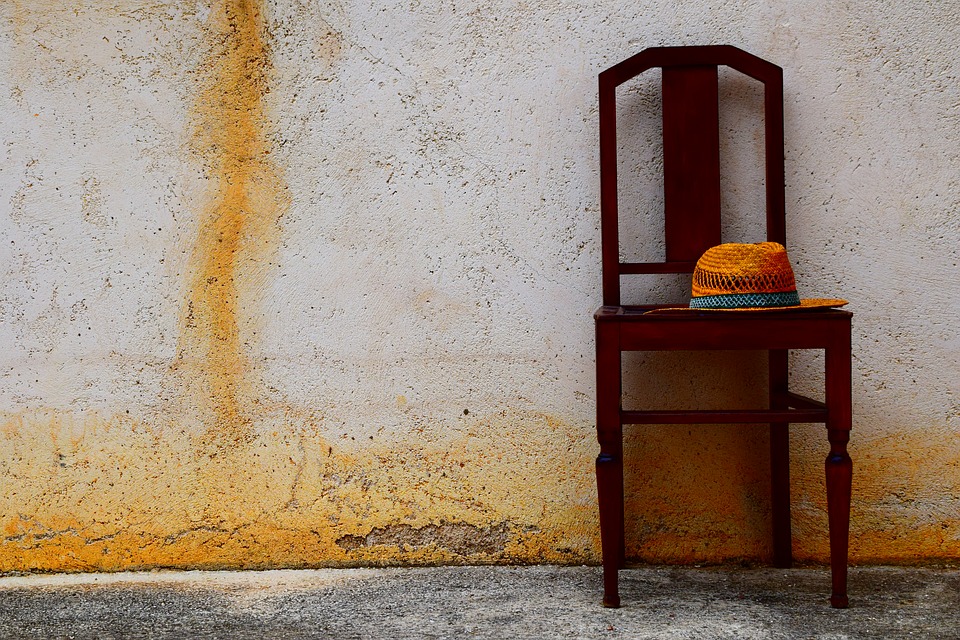The “Big Why”

Finding the Right Columbarium Niche
April 16, 2018


Helping Children Deal with Grief After a Loved One Dies
April 23, 2018

The Big “Why”?
She is surrounded by family as her tired, frail, ninety-five-year-old body can no longer go on. Her family grieves, yet, understands. Another family receives the shocking word that their fifty-two-year-old husband and dad dies suddenly from a heart attack. The disbelief and sudden grief are real, but they understand. Traffic accidents, drownings and cancer take so many lives. But there is one death that is perhaps the most difficult with which to deal. When a suicide occurs, those left behind are faced with the “Big Why?”. It is a question that may never be answered with understanding or certainty. One of the greatest influencers of suicide is Post Traumatic Stress Disorder. We are seeing a steady rise in the numbers of our veterans who succumb to suicide as a direct result of PTSD.
Over the years, I have embraced survivors of suicide. They carry the “Big Why?” with them all the time. And that question is so often accompanied by guilt. The guilt resulting from feelings that they somehow should have been able to see it coming; that, in hindsight, there were tangible signs and indicators of the person’s suicidal path. It’s the, “(Big) Why did I not see it coming?”
There are a few more reactions to the “Big Why?” of Suicide.
Anger
Unlike many forms of death, suicide can produce anger toward the deceased. When a person is murdered or killed by someone driving under the influence, we tend to be understandably angry with the person we deem responsible for that person’s death. Suicide is different. The anger toward the one who took his own life is rooted in the indignant “Big Why?” “Why would you do this to your family and friends?” “I’m angry that you chose to check out!”
Fear
The other reaction involves the heightened awareness of our own mortality. It is the fearful thought that we too, in our own dark circumstances, might possess the capability of taking our own lives. It is not uncommon for suicide to enter our darker thoughts. I can only imagine the struggle that the actor Robin Williams was experiencing when he chose to end his life. He was a brilliant artist whose mental gymnastics and improvisational skills identified him. His ability to always be two steps ahead of his own conversation was unrivaled. It is what made Robin Williams…well…Robin Williams! But Parkinson’s Disease with Lewy Bodies Dementia would become a silent thief, robbing him of his identity. I am saddened by the emotional anguish that preceded his decision that he just couldn’t continue to live with that dreaded prognosis. I asked myself, “What would I have done in his situation?” “Do I have a breaking point?”
Condemnation
This is a tragically destructive reaction to suicide. There are those whose theological disposition regards suicide as a sin God will not forgive. As a theologian, my response to that position is that I trust God’s heart more than a limited or flawed interpretation of God’s mind. It also pre-supposes that the person’s relationship with God was nullified due to the despair of mental and emotional pain; that God would never accept the soul of a person whose mental or emotional pain extinguished the smallest light of hope. I will always defer judgement to a fair, merciful and loving God.
We just don’t know why a person gives up. It is very sad that we are often unable to count the many heroic battles that a person may have fought and won before darkness overtook them. It seems unfair that all the good acts and impulses of such a person should be forgotten or blotted out by that tragic irreversible act. I believe that our reaction should be one of love and sympathy, not of condemnation.
A clinically depressed person’s rationality becomes blurred in those final moments; perhaps so driven by an emotional tsunami that rendered him incapable of thinking anything except an end to the pain.
Do we not all have moments when we lose control with flashes of temper, irritation or selfishness that we later regret? Does not each one of us likely have some final breaking point – even if we have been nurtured in faith? Life inflicts much greater pressure and pain on some than it does on others. Some persons have more complicated personality traits and medical challenges than others.
There is a story written by Dr. Norman Vincent Peale some years ago that speaks to the “Big Why?”. Dr. Peale writes, “A few years ago, when a young man died by his own hand, a service for him was conducted by his pastor. What he said that day expresses far more eloquently than I can express the message that I am trying to convey. Here are some of his words.”
“Our friend died on his own battlefield. He was killed in action fighting a civil war. He fought against adversaries that were as real to him as his casket is real to us. They were powerful adversaries. They took toll of his energies and endurance. They exhausted the last vestiges of his courage and strength. At last these adversaries overwhelmed him. And it appeared that he had lost the war. But, did he? I see a host of victories that he has won! For one thing – he has won admiration – because even if he lost the war, we can give him credit for his bravery on the battlefield. And we can give him credit for the courage and pride and hope that he used through his kindnesses and thoughtfulness, through his love for his family and friends … for all things beautiful, lovely and honorable. We shall remember not his last day of defeat, but we shall remember the many days that he was victorious over overwhelming odds. We shall remember not the years we thought he had left, but the intensity with which he lived the years that he had. Only God knows what this child of His suffered in the silent skirmishes that took place in his soul. But our consolation is that God does know and understands.”
I want to share some important news with you.
Morrissett Community Care and Aftercare offers various grief support groups, such as our Widowed Support Group. Another of those groups is our SOS (Survivors of Suicide) Group. The group will be co-facilitated by Tracy Hineman and me. Tracy is one of our dedicated and compassionate directors who has experienced the pain and grief of a survivor of suicide. Our SOS Support Group has been graciously provided a meeting place at Iron Bridge Church in Chester.
If you need a safe place to work through the grief that accompanies being a survivor of suicide, please contact us. The objective of the group is to experience healing. A suicide survivor may never be able to answer the “Big Why?”, but it’s so important for you to know that you are not alone. You can find strength and hope within a group of people who understand your struggle and provide support. Please call me or text at 804-873-0441 if you would like to explore being a part of this support group.
Greg Webber
Greg Webber
Director, Community Care/Aftercare
Certified Celebrant
6500 Iron Bridge Rd.
Chesterfield, VA 23234
804-275-7828 (office)
804-873-0441 (cell)



